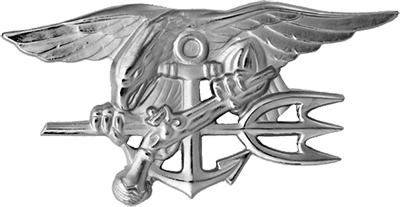On Oct. 5, two assaults took place in North Africa by U.S Special Forces units. One took place in Libya where the U.S apprehended a fugitive on the UN al-Qaeda watch-list with a $5 million bounty on his head. Abu Anas al-Liby reportedly helped to mastermind al-Qaeda’s simultaneous bombings of the U.S. embassies in Kenya and Tanzania in 1998. This mission was a success and al-Liby pleaded not guilty to the charges brought against him in a New York federal court on Tuesday.
The second U.S. forces strike took place on the same day, but failed. The objective of the mission was Mukhtar Abu Zubeyr, who was residing at his seaside villa in the Somali town of Baraawe, south of the capital Mogadishu. Unfortunately for the U.S military, this beachside villa was heavily guarded and when just a small unit of U.S Special Forces went to follow through with the attack by seashore in the midst of night. This second seek and destroy mission on the al-Shabaab leader Mukhtar Abu Zubeyr was a failure, but it has been reported that seven members of al-Shabaab were killed with no U.S casualties. This attack on the Somalian terrorist compound was only planned out a week and a half ahead of time in a direct response al-Shabaab’s atrocious ambush on the Nairobi shopping mall in Kenya in September. Clearly, as the results of this second assault have shown, a week and a half is not enough time to gather intelligence and efficiently take out high profile targets that pose a threat to national security. The U.S. Secretary of State John Kerry said that the two operations against militants in North Africa sends the message that terrorists “can run but they can’t hide.”

I’m sure the U.S. government was slightly hesitant to enter into Somalia after the Blackhawk Down incident in Mogadishu, Somalia in 1993. The Pentagon seems to have steered clear of Somalia for years and did not publicly strike the country until a U.S. Special Forces raid took place in 2009 on Barawe – the same town as the Oct. 5 raid; only in this raid the U.S located and killed its target, the al-Qaeda leader in Somalia at the time, Ali Saleh Al-Nabhan.
Aside from the success in the Libyan raid, one other issue has arisen from these raids. Controversy has been sparked as to whether or not the U.S. informed the Libyan government about when these raids were going to take place and where. As any logical person can assume, governments usually like to know ahead of time before foreign militaries come in and start shooting up buildings, deliberately attempting to kill certain people. Somalia has disclosed that it was in fact notified by U.S. officials about the attack that took place on their land.
The issue here of communication seems like an additional problem that the U.S military ran into when going about these attacks. All governments have every right to chase down terrorists and seek justice no matter where those terrorists hide. They should be able to carry out these missions by any means necessary and with whatever ways are most efficient for them. This does not mean, however, that we can just go into other countries without informing them and conduct military missions. If another country was chasing down terrorists in Boston and they just started shooting at their target with innocent bystanders nearby possibly causing damage to people or buildings, the U.S. would definitely have a lot to say in response. We should continue to hunt down terrorists across the world so they know that we will hunt them until we find them, but not by entering other countries’ lands without at least telling them when it’s going to take place, let alone asking them.






